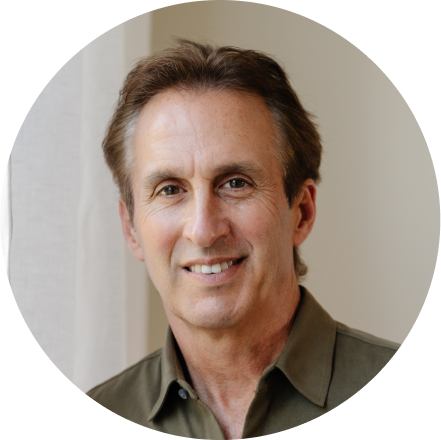Unveiling the Heart of "All That Really Matters": An Interview with David Weill
By David Weill, M.D.


In a heartfelt discussion, we delve into the creative mind behind the captivating novel “All That Really Matters,” exploring the intricate balance of professional ambition and personal connection that defines its narrative.
Q: What inspired you to write a story about the rise and fall of a top surgeon, intertwined with a love story?
A: For personality types like my main character, the price of doing business in this high-stakes world of medicine is the loss or disruption of relationships, especially the ones closest to him. In writing the story, I wanted to show how the rise of Dr. Bosco’s career closely tracked the deterioration of his closest relationships. I wanted to demonstrate how a career like Dr. Bosco’s necessarily impacts the way he interacts with the rest of the world.
Q: Can you share a bit about your own background or experiences that influenced the themes and characters in the book?
A: Like many novelists, some of what I write about is what I saw in my professional and personal life. But—and here’s a big caveat—the story is fiction. There are parallels between my main character and me, but those parallels are not exact!
Q: The protagonist’s journey involves redemption. What do you hope readers take away from his story?
A: Pretty simple: that if you find your life’s mission and stick to it, redemption is always available. It’s never too late to re-find yourself.
Q: How did you approach balancing the medical drama with the romance elements in the narrative?
A: I tried to use the hospital setting as just a vehicle to show a man who lost his way in a high-pressure world. Joe Bosco could have been a Wall Street trader or a fighter pilot, but I made him a transplant surgeon because I know that world. I mean, I know that world.
Q: The relationship between the main character and his med school girlfriend, at times, seems central to the story. What inspired their dynamic, and how did you develop their connection?
A: In many ways, Kate’s professional accomplishments were even more significant than Joe’s. Joe initially can’t accept that Kate’s career is as important to her as Joe’s is to him. This is an important theme because many successful women run into problems when their love interest can’t handle her success.
Q: In what ways does the love story contribute to the protagonist’s humanity and growth throughout the book?
A: Joe’s relationship with Kate is a way to show his evolution as a person. The relationship is shown as strong at the beginning as Joe pursued his career but then deteriorated as Joe rose in his career. When things change for the worse for Joe, the relationship suffers as Kate does what’s best for her, leaving Joe to deal with his own issues alone.
Q: Without giving away too much, can you discuss the pivotal moments when the main character lets his girlfriend go and when he decides to find her?
A: Simply put, he lets the relationship go when he thinks he can afford to, that he can live without her. He tries to win her back when he does the work on himself and realizes that he can’t live without her.
Q: How did you navigate portraying the protagonist’s flaws and moments of weakness, particularly in relation to his romantic relationship?
A: I wanted to show Joe at his best and his worst, demonstrating why Kate fell in love with him and eventually had to let him go. Joe made choices—some of them were bad choices and he has to live with them. Those choices affected his career and his personal life, both of which he desperately tries to regain.
Q: Were there any particular challenges you faced while writing this story? How did you overcome them?
A: I faced the same challenges that any novelist does—make the characters 3 dimensional and put them in situations where they can transform and grow. Joe’s personal challenges led to trouble but they also gave him an opportunity to become a better man. Isn’t that what life’s teachable moments should do?
Q: What do you hope readers remember most about the characters and their journey long after finishing the book?
A: I want the readers of “All That Really Matters” to come away with an understanding of how we are greatly influenced by our parents, how we interact with our careers, and how we view ourselves impacts how we interact with other people. I hope the readers will understand that sacrifice is necessary for all of us in order to get what we want—and those sacrifices often come with a price. But if we truly find what really matters and keep our eye on that, things will usually work out in the end.

No Comments on Unveiling the Heart of “All That Really Matters”: An Interview with David Weill